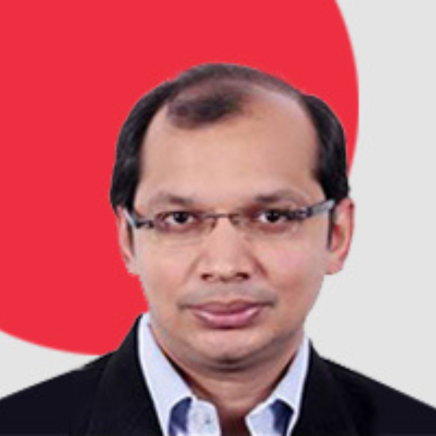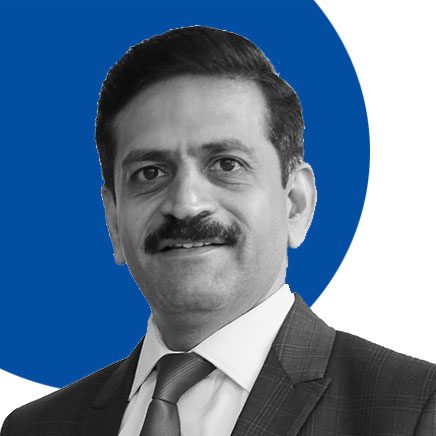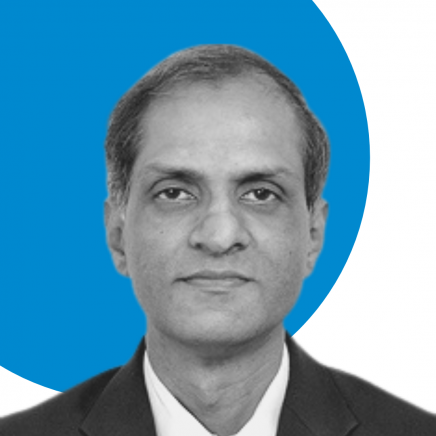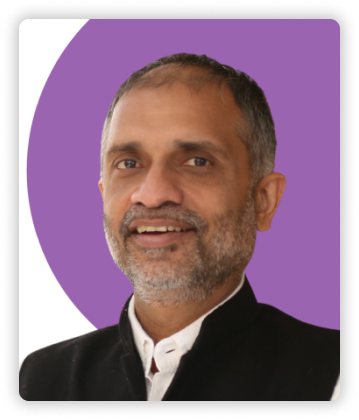About the organization
Patang was started with a vision to create a society where young people take the initiative for positive social change, with a strong emphasis on developing the knowledge, skills, and confidence of these young people. Through our innovative programs, we combine both these aspects in a diverse range of activities. The successful implementation of various programs in the last 15 years has helped us redefine ourselves as a Regional Youth Support Center (RYSC).
Education is also our core program where we have a goal to establish Patang as a resource agency in the field of education especially MLE through providing capacity building and technical support to the organization, institutions, and individuals. With this goal, we started the Multilingual Education Programme with the support of the Wipro Foundation, in 2016.
Location of work
Under this program, we run four learning centers in the school campus of Meghpal and Chhamunda schools under the Sambalpur district; and the Deogaon and Katapali schools in the Bargarh district of Odisha.
Project update
During the COVID period, we have continued children’s learning by running learning centers in the community. But after the relaxation of COVID restrictions, all schools were open. We have again started our learning center in the campus of the respective schools in this financial year. Since last April, we have conducted many activities with children, community people, teachers, and partner organizations and institutions.
Patang had conducted 2 meetings with teachers and discussed the Foundation of Literacy and Numeracy and the preparedness of the classroom environment for children before school reopened last April 2022. In this meeting, 40 teachers participated and shared how they prepared the school environment and tried to fulfill the aim of FLN and which kind of support we can provide them. During the meeting, we also discussed re-organizing the classroom with innovative ideas and TLM for the children.
Besides that, in the Bargarh district, Patang has been invited as a resource organization to facilitate the making of Teaching Learning Material (TLM), as part of workshops organized by the district administration of the Katapali cluster. We also participated in a district-level planning meeting on FLN on 25th January 2023. This meeting mainly discussed the issues of the children in primary education, doing an FLN corner in the classroom, and regular monitoring visits and support to the teachers.
Like teachers, the community also has an important role in the multilingual education of primary-level children. So involving community people in the children’s learning process we have organised Bahi Hata (Community-based mobile library) in different phases at 8 villages of Sambalpur and Bargarh districts. More than 750 children, community people, and youth participated in this process.
On World Book Day on 23rd April, we facilitated Bahi Hata at Sakhipada (an urban slum area of Sambalpur). On this day we conducted book reading, storytelling, and many fun activities with children. 60 children, ASHA, Anganwadi workers, community people, and young people participated. Patang also involved and facilitated meetings with SMC members at Lehunipadar and Deogaon villages of Bargarh block. In these meetings, we have discussed the role of SMC members in the children’s learning process, especially in the Multilingual education process.
Now the district education administration is also involved actively in our program. In collaboration with district administration, we have organized an awareness drive on MLE and the Right to Education from 26 to 30 December in 20 villages of Bargarh and Bhatli block. In this drive, we run a “Sikhya Barta Ratha” that reached the villages and aware people through songs, theatre, village meetings, and film screenings on education. Close to 2,000 parents, teachers, children, and young people were reached out through this process. Mr. Saroj Bhue, BEO of Bhatli was involved and supported our team to facilitate the activities in the field.
Patang has reached out and created awareness of MLE work by exhibiting a stall during the 19th district-level Pustak Mela organized by Gandhi Smruti Pathagar, Bargarh from 20 to 29 November 2022.
We have also facilitated 4 language melas in the villages of Sambalpur and Bargarh districts. In these activities, we have demonstrated our TLM, facilitation process through stalls in front of the community. More than 700 children and 150 community people and teachers reached out through the process. These days teachers also facilitate some TLM with children, and community people facilitate storytelling activities with children. Children of the learning center also demonstrated their learning by exhibiting their writeups and drawings.
During the Summer holiday, we conducted a summer camp with 95 children in the Deogaon Learning Center, where children from Chandipali, Dang, and Deogaon participated actively in different activities. The objective behind this is to continue the children’s learning during summer vacation through innovative, fun, and learning activities.
Besides, we have conducted learning activities regularly to improve the language learning competencies of the children. Some examples of learning activities are – book reading, letter identification, word making, letter to a new word, picture card discussion, storytelling, sentence making, and in mathematics- number counting, addition, subtraction, etc.
We also created self-learning and peer-learning opportunities for children in the centers. Children also lead the library activities at centers and they also developed TLM for their self-learning. Under the activities of the learning center, we have provided exposure opportunities to children for their experiential learning to visit the nearest market, garden, historical places, and the Patang-organized events.
More than 100 children from Chhamunda, Bhatli, Larabira, and Nuadahapara villages of Sambalpur want to visit the Indigenous Seed festival organized by Patang on 10th January 2023. 10 teachers and Cluster Resource Center Coordinator also participated in this festival and facilitated the language and cultural link of the organic farming process and the importance of nutritional food for children.
To achieve our goal of establishing Patang as a resource agency in the field of education, especially MLE, Patang initiated an MLE Collective last March. Under this, we have conducted the following webinars, meetings, and other activities:
Two team members from the Zep organization, Akola, Maharashtra visited our education program from 1st July to 11th July 2022. During their visit, we oriented our program approach and methodology. They also visited our learning centers and community activities. We have visited Gramothhan in Sonepur and discussed with the Gramothhan team regarding the future partnership and collaboration in MLE works. We also visited their field and interacted with children. We also conducted a meeting with the Maee team, Uttarakhand through online mode. In this meeting, we discussed their work with children and how Patang will support them.
Location of the programme
In this initiative, Patang works in Jujomura and Maneswar blocks of Sambalpur district and Bargarh block of Bargarh district. In total, we are working in 7 Panchayats from two districts. These panchayats have around 50 villages consisting of around 50 schools.
Learning and challenges
| Learnings | Challenges |
|
|
Plan for the next 1 to 3 years
As Patang evolves into a resource organization in the field of multilingual education, we have proposed to work on the following things in this proposed project period. We will set up an Education Resource hub to provide space for teachers, educationalists, young people, and community people to come and access resources on MLE. This center will design and ensure the availability of both online and offline resources to schools, teachers, parents, educationists, and other stakeholders. This center acts proactively in enabling the community of practice.
We also run 1 learning center to ensure the learning of the children from class 1 to class 3 directly. We will directly work to practice and demonstrate our process, and approach with children, teachers, the community, and other stakeholders in this center to ensure the language competencies of the primary-level children through Multilingual Education. In other centers, we will be ensured by involving the teachers. We will visit the field and support the teachers in implementing the MLE approach in their respective schools.
Besides that, based on our learning from the various training and workshops and field experiences we will consolidate and re-look at our training process and plan to keep new education policy as well as present needs in the school system. The course modules will be on language development, multilingual education approach, pedagogy, learning theory, Language learning process and competencies of children, curriculum design and assessment, etc. This module will be run through an organized 10-day orientation program with teachers.
We also created a structure/program to develop capacity and support partner organizations to implement the MLE approach in their field. In this project, we have continued the dialogue, and field visits to organizations like Gramothhan (Sonepur, Odisha), Maee (Haridwar, Uttrakhand), and LIFI (Delhi) for future partnership and collective work in the field of MLE.

Sachin Bansal heads finance function for Wipro Consumer Care & Lighting in India and South Asia.
He moved to Wipro Consumer Care in 2022 and prior to that was the head of finance of Wipro Infrastructure Engineering (WIN). He joined WIN in 2007 and over the last 15 years has essayed several roles including Plant Finance, India Hydraulic Business Finance, Global Operations Finance and Mergers & Acquisitions.
A qualified Chartered Accountant and a Black Belt in Six Sigma, Sachin has led several successful initiatives to streamline and strengthen the Finance function. As part of the leadership team of WIN, he played a pivotal role in driving profitable growth with improved focus on ROCE, Productivity and Cost Optimization.

Isaac George has held several positions at Wipro across Sales & Marketing, Consulting, and IT Operations for over two decades. Since 2014, he has been leading People Function and Employee Relations at Wipro Infrastructure Engineering. Isaac also heads the group’s social initiatives efforts and works towards creating an inclusive environment for Persons with Disabilities.

Samir Gadgil is the Head HR for the Chief Growth Office and all Corporate Functions at Wipro. He is also Wipro Cares’ Pune Location Head.
Previously, Samir has worked as Head – HR for Digital Operations & Platforms and managed multiple initiatives under HR and People Supply Chain Functions, including Talent Acquisition, Talent Transformation, Workforce Management, Facilities & Transport.
A seasoned professional, Samir has also served as the Global Head- Compensation, and Benefits at Wipro and worked with best-in-class Manufacturing, Consulting, Financial, and IT Service Companies in a career spanning over two decades.

Narayan P S is the Global Head of Sustainability and Social Initiatives at Wipro Ltd. He is also the Managing Trustee at Wipro Foundation, the social initiatives arm of Wipro Ltd. He has been instrumental in the creation of Wipro’s sustainability initiative and has stewarded it since its inception in early 2008. Wipro’s sustainability charter is built on the core principle that business and social purpose must reinforce each other in addressing several key challenges around ecology and the environment, education, and communities.
In addition, Narayan is Visiting Faculty at the Azim Premji University where he teaches ‘Ecology and Development’ in the MA ( Development) program. He is also a Visiting Faculty at Xavier School of Sustainability, Xavier University, Bhubaneswar. Narayan also conducts learning sessions regularly on Sustainability at IIM Bangalore and IIM Indore.
Narayan’s interests center around (i) the broad interplay between Ecology, Economics, and Humanities (ii) the role of the business sector as a change agent in sustainable development (iii) Sustainability in Education, and (iv) Sustainable and Inclusive Cities.
Prior to the current role, Narayan was the Global Head of Information Systems for Wipro’s IT business, when he was chosen as one of CIO’s global 25 Ones to Watch.
A graduate in Electrical Engineering with a post-graduation in Management, Narayan has more than twenty-seven years of cross-disciplinary experience in Business Development, Enterprise Systems, and Corporate Sustainability. He is also involved in sustainability advocacy as a member of several industry forums on sustainability. He is currently the Chairman of the CII-GBC Greenco forum for Bangalore.
To effectively execute projects in our chosen areas of work, we aim to partner with credible organizations that comply with the criteria mentioned below:

Vikrant has recently joined to lead the human resources function for Wipro Enterprises which includes Wipro Infrastructure Engineering (WIN) and Wipro Consumer Care & Lighting businesses.
Vikrant comes with 25 years of diverse global leadership experience in Strategic Talent Management, Mergers & Acquisitions, Organization Design, Cultural Transformation & Change Management, D&I, and Leadership Coaching & Development across Services, Manufacturing, Retail and Technology industries. Besides Human Resources, Vikrant has also led roles across Finance & Audit.
With a career spanning L&T, GE Healthcare, Nike, Accenture, HCL, and Harman International, Vikrant has a distinguished track record and is an alumnus of the Symbiosis Institute of Business Management, Pune.

Aparna C. Iyer is Wipro’s Chief Financial Officer.
Aparna joined Wipro in 2003 and over the years has held several finance roles, including Internal Audit, Business Finance, Finance Planning and Analysis, Corporate Treasury, and Investor Relations (IR).
Most recently, Aparna was Senior Vice President and CFO of Wipro FullStride Cloud, leading finance operations for one Wipro’s fastest growing global business lines.
Prior to taking over as CFO of Wipro FullStride Cloud, Aparna was the Corporate Treasurer and Head of Investor Relations for Wipro Limited. As a part of that role, she was responsible for building and executing forex risk management framework, investment of surplus cash, working capital management, customer credit risk evaluation, driving capital allocation decisions, managing balance sheet exposure as well as investor and analyst relationships.
As the Head of Treasury & IR, Aparna devised Wipro’s forex strategy, aiding the operating margin performance of the company, and driving improved predictability.
Aparna is a Chartered Accountant (CA) and was a gold medalist of the CA 2002 batch.

Saurabh Govil is the Chief Human Resources Officer at Wipro, and a member of the Management Team. He leads all Wipro’s HR functions, including talent acquisition, talent engagement, and learning and development programs.
Saurabh has been a HR practitioner for over two decades, and has worked with organizations like ITC and GE. Since joining Wipro in May, 2009, he has been instrumental in transforming the organization. His work with people, processes, and organizational structure over the last three years has contributed significantly to Wipro’s growth, improving operations and introducing many new initiatives.
Saurabh is an alumnus of XLRI, Jamshedpur where he completed his master’s in human resources. He is on the advisory board of SHRM India. Saurabh has been a regular speaker at NASSCOM’s HR summit. He also contributes to NHRDN’s journal as an author.

Anurag Behar is the Chief Sustainability Officer of Wipro Limited & Vice-Chancellor, Azim Premji University.
Anurag is a member of the Committee that has developed India’s National Education Policy (2019), the first comprehensive education policy for the country, since 1986. He has been deeply engaged with efforts to improve education in India, for the past seventeen years.
He has been a vocal advocate for the critical importance of public systems, in particular the public education system. His many years in business have given him an insider’s view of both the possibilities and limits of markets. For the past few years, he has also been engaged with environmental and ecological issues. He writes widely, including a fortnightly column for the national newspapers Mint & Hindustan, and other publications.
Anurag has earlier played leadership roles in business. As the CEO of Wipro Infrastructure Engineering, he led the business from being No. 20 in the world to being the No. 1 in 5 years. He has also been responsible for many corporate functions for Wipro including Brand, Quality, and Innovation. He continues to provide oversight to the social and ecological initiatives of the Wipro Group, as its Chief Sustainability Officer. He is a member of Wipro’s Group Executive Council.
Anurag has served on various boards including that of Wipro GE Healthcare Ltd, The University of Trans-Disciplinary Health Sciences, and of the TERI University. He serves on many government & sector councils, such as MHRD’s EQUIP, the National Mission on Teachers and Teacher Education, the Government of India implementation committee for the Justice Verma Commission, Karnataka Knowledge Commission, and with the CII’s National Climate Change Council.
He has an MBA from XLRI, Jamshedpur, and a BE in Electrical & Electronics Engineering from the National Institute of Technology, Trichy. Both institutions have honored him with their Distinguished Alumnus award. He was elected as a ‘Young Global Leader’, by the World Economic Forum in 2008. He enjoys long-distance running.

Narayan P S is the Global Head of Sustainability and Social Initiatives at Wipro Ltd. He is also the Managing Trustee at Wipro Foundation, the social initiatives arm of Wipro Ltd. He has been instrumental in the creation of Wipro’s sustainability initiative and has stewarded it since its inception in early 2008. Wipro’s sustainability charter is built on the core principle that business and social purpose must reinforce each other in addressing several key challenges around ecology and the environment, education, and communities.
In addition, Narayan is Visiting Faculty at the Azim Premji University where he teaches ‘Ecology and Development’ in the MA ( Development) program. He is also a Visiting Faculty at Xavier School of Sustainability, Xavier University, Bhubaneswar. Narayan also conducts learning sessions regularly on Sustainability at IIM Bangalore and IIM Indore.
Narayan’s interests center around (i) the broad interplay between Ecology, Economics, and Humanities (ii) the role of the business sector as a change agent in sustainable development (iii) Sustainability in Education, and (iv) Sustainable and Inclusive Cities.
Prior to the current role, Narayan was the Global Head of Information Systems for Wipro’s IT business, when he was chosen as one of CIO’s global 25 Ones to Watch.
A graduate in Electrical Engineering with a post-graduation in Management, Narayan has more than twenty-seven years of cross-disciplinary experience in Business Development, Enterprise Systems, and Corporate Sustainability. He is also involved in sustainability advocacy as a member of several industry forums on sustainability. He is currently the Chairman of the CII-GBC Greenco forum for Bangalore.